How the Queen has steered family and nation through 70 years
A constant presence across generations, Elizabeth II has always been able to chart a dignified path, says Sean O’Grady

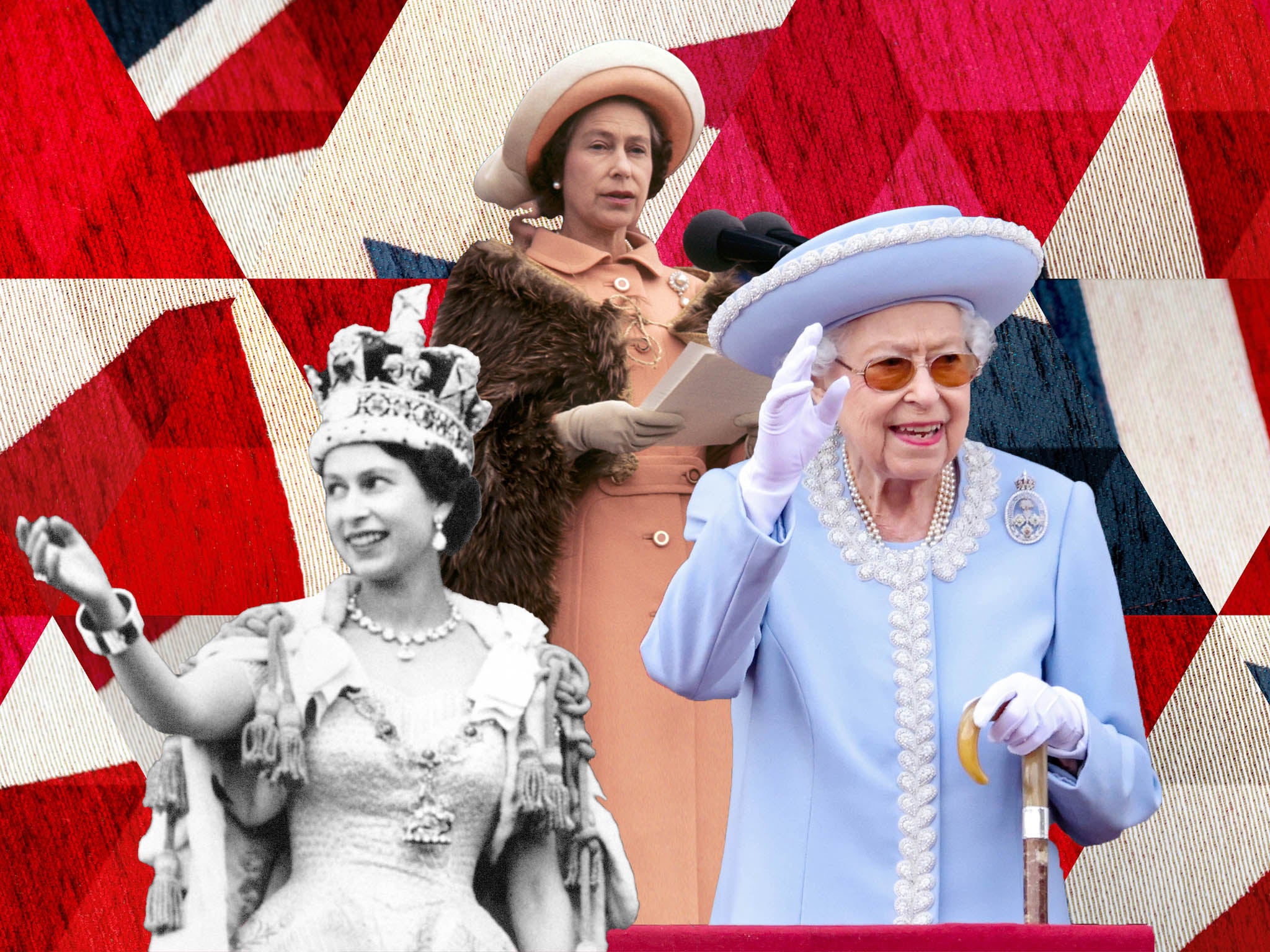
For seven decades, the British have been in a rather special relationship with the Queen. Like any partnership, it has had its ups and downs, bad times and good, the occasional rift. Not everyone has been enthusiastic about it, and some have wanted to end it long ago; yet others sleep outside overnight for a glimpse of her or for news of the birth of one of her direct descendants (25 and counting). Yet here we are, 70 years on, still together. How did it come to be?
It’s about much more than Elizabeth II being the head of state. That doesn’t necessarily make you beloved, even after 70 years.
Britons have had many unpopular, even despised, kings and queens in the long history of the monarchy; figures that were neither liked nor respected. In centuries past, a few couldn’t even speak English and would thus fail modern citizenship tests, yet were tolerated. Others were disliked for being idle, gluttonous, wasteful, traitorous, degenerate (by the mores of the times) and, ironically enough, undemocratic. One “went mad”, and had to be relieved of his duties, another lost his head, another abdicated before things got out of hand, another fled the country.
The “divine right of kings” was barely even a reality even when James VI of Scotland/James I of England promulgated it in 1609. It is difficult to imagine Elizabeth II agreeing with her ancestor that: “The State of MONARCHIE is the supremest thing upon earth: For Kings are not only GOD’S Lieutenants upon earth, and sit upon GOD’S throne, but even by GOD himself they are called GODS.” Some might think the present United Kingdom might be better governed if Boris Johnson looked upon his monarch more as a deity, but that honour is reserved to himself.
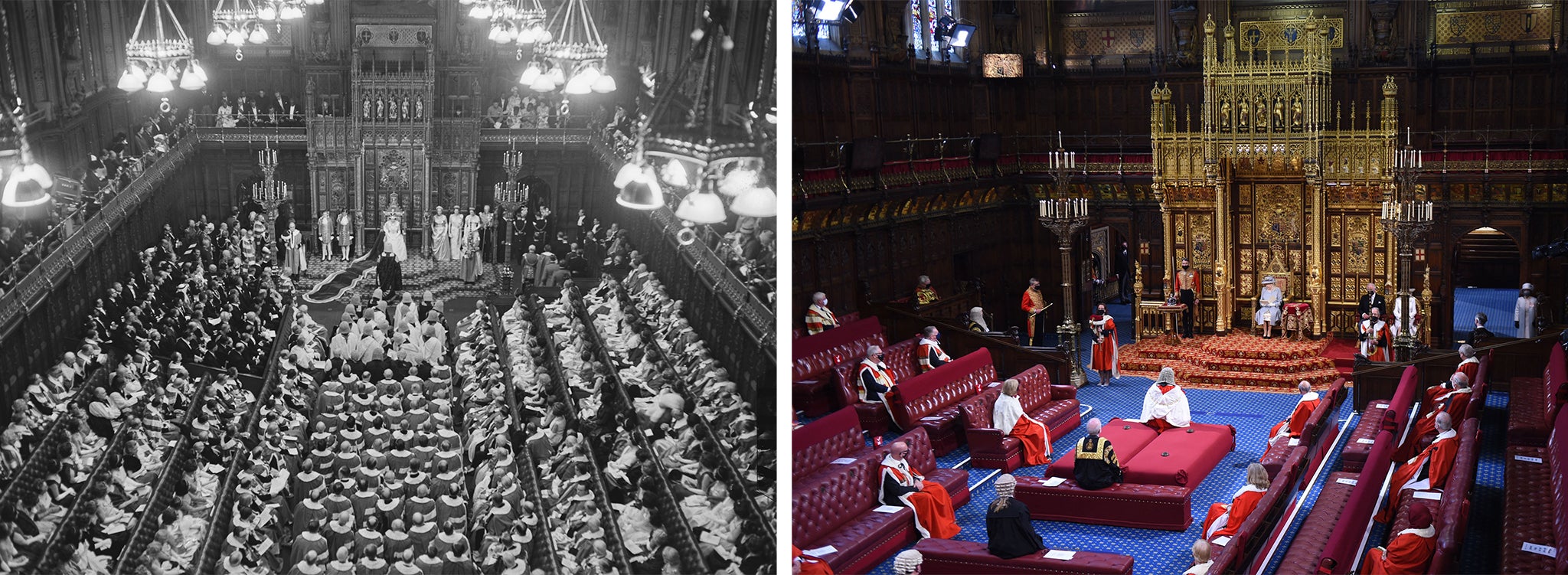
A modern constitutional monarchy obviously doesn’t rest on such principles, and the Queen’s position and moral authority depends much more on the “divine” right of the people to have someone in the job who they like, they think is good at it, and is of practical use in being the embodiment of a kind of national ideal that can be mirrored at home and abroad. With remarkably rare lapses, Elizabeth II has been an exemplar as head of the nation as well as formal head of state. Her understanding of her role and dedication to it as a vocation, even a religious duty, has assured the survival of the institution she represents. She knows what to do, you might say, and when in doubt, she will listen.
It hardly needs pointing out that her presence has been especially reassuring in times of trouble and that the recent years of Brexit and Covid-19 have been divisive and traumatic. It is difficult to imagine a politician (Margaret Thatcher, Tony Blair, Boris Johnson) being able to command similar respect from all sides. Compare with the pandemic path taken by Donald Trump or Emmanuel Macron to see the point. It is why her address to the nation in the early days of lockdown in April 2020 was so effective. Her neutrality, her authority as someone who lived through the last world war, and her sense of what the nation wanted to hear at that time of peril, all helped make it surprisingly moving.
Through the hindsight of Partygate, some of her address makes uncomfortable reading: “I hope in the years to come everyone will be able to take pride in how they responded to this challenge. And those who come after us will say the Britons of this generation were as strong as any. That the attributes of self-discipline, of quiet good-humoured resolve and of fellow-feeling still characterise this country.
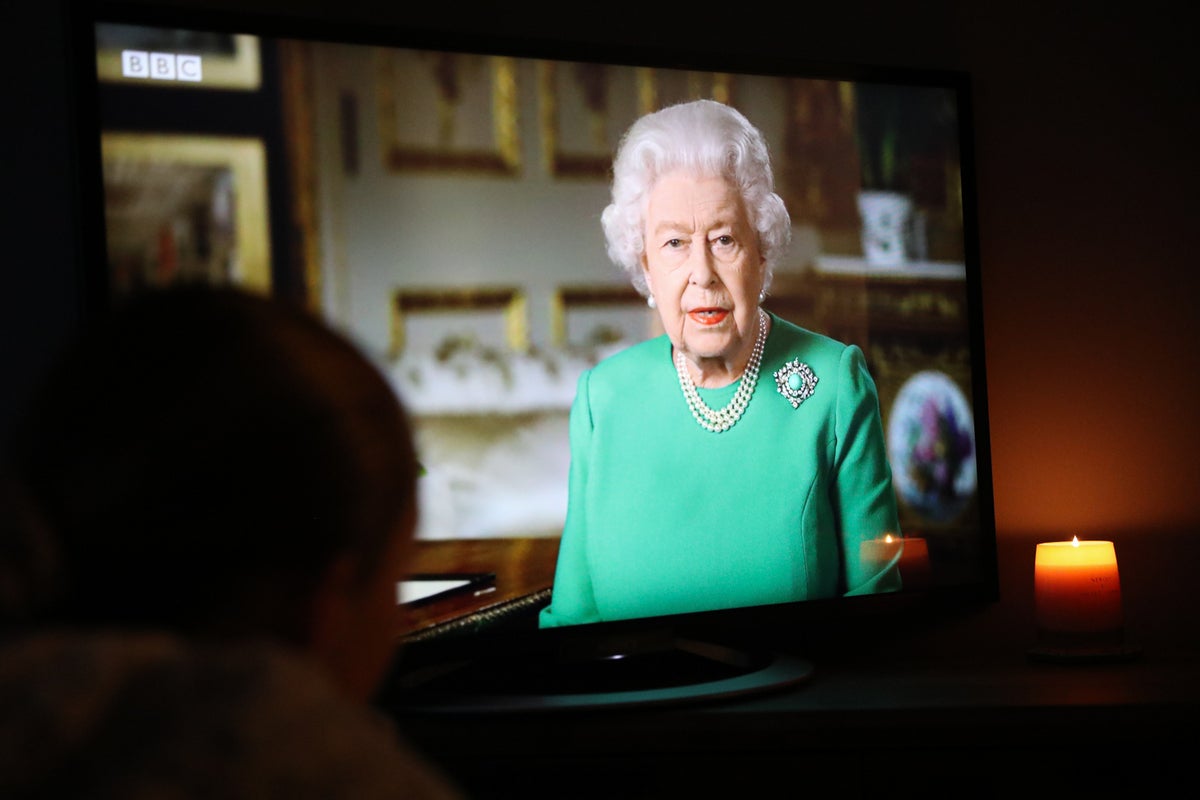
“It reminds me of the very first broadcast I made, in 1940, helped by my sister. We, as children, spoke from here at Windsor to children who had been evacuated from their homes and sent away for their own safety. Today, once again, many will feel a painful sense of separation from their loved ones. But now, as then, we know, deep down, that it is the right thing to do.
“We should take comfort that while we may have more still to endure, better days will return: we will be with our friends again; we will be with our families again; we will meet again.”
Some 24 million people watched her address on that Sunday evening. The great majority of Britons felt that they needed to obey the rules, make sacrifices and help their neighbours, and they were ready to be encouraged to do so by a leader who plainly wanted to set an example.
It was visible again – painfully – when she sat alone at the funeral of Prince Philip a year later. We now know there was a marked contrast between her behaviour and that of others in positions of leadership. It’s too fanciful to imagine some communion between monarch and people but it’s obviously the case that, despite living in palaces and never having to face the hardships of so many, she knows what she ought to say, without being pompous or condescending.
That Covid speech confirmed how accomplished she is as a television “performer” despite being born seven years before the first BBC television broadcast, and many only started buying televisions to see her coronation in 1953. Her first televised – and live – Christmas message was in 1957. Unlike her father George VI, who we now know suffered from a bad stutter, she seemed to enjoy the ordeal and set out a kind of manifesto of what her version of modern monarchy would comprise:
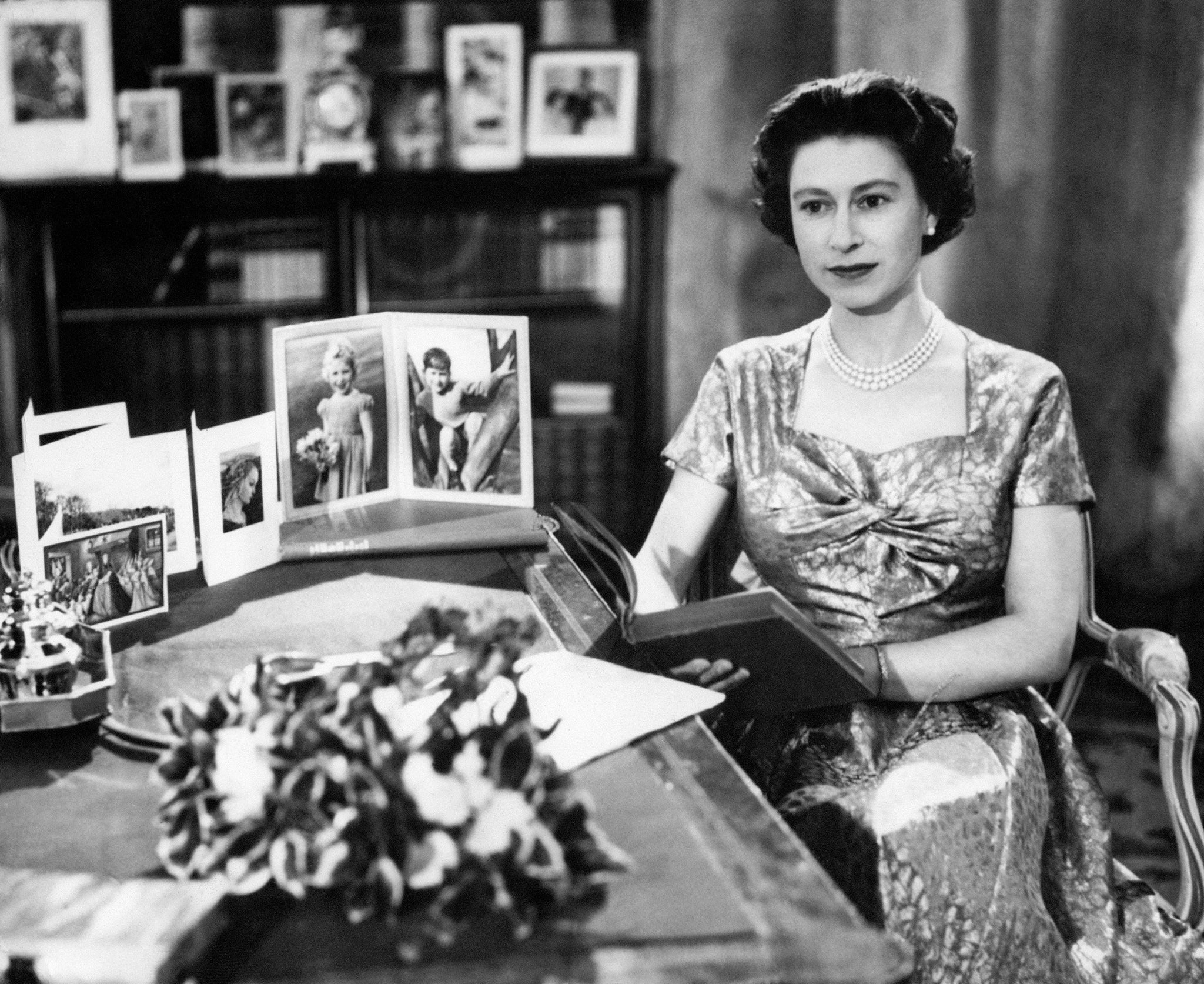
“In the old days the monarch led his soldiers on the battlefield and his leadership at all times was close and personal.
“Today things are very different. I cannot lead you into battle, I do not give you laws or administer justice but I can do something else, I can give you my heart and my devotion to these old islands and to all the peoples of our brotherhood of nations.
“I believe in our qualities and in our strength, I believe that together we can set an example to the world which will encourage upright people everywhere.”
She also understood that the monarchy had to respond to and carry public support in all that it does. After all, it was in 1917, at the height of wartime anti-German sentiment that George V changed the family name from Saxe-Coburg-Gotha to Windsor and deleted any Germanic-sounding titles kicking around the establishment (hence the Battenburgs became the Mountbattens). The Windsors, and their forebears, had seen too many crowned heads roll to ever be complacent. Not long after the birth of the House of Windsor, George’s lookalike cousin Nicky, Czar of all the Russians and his family were wiped out in the Bolshevik revolution. George V had declined to rescue them on the advice of his government and from his own risk aversion; it demonstrates the family’s instincts when the chips are down.
The Queen’s intuition has equally been impeccable but the 1990s showed her fallibility. In 1992, part of Windsor Castle burned down, Charles and Diana separated, and there was one of those periodic arguments about the taxpayer funding hangers-on and extravagance. She called it her annus horribilis but in the end she agreed to pay tax, reversing a concession that dated back to the early part of her father’s reign. Long before the cost of living crisis, Prince Charles wisely wanted to further slim down the sovereign grant payroll.
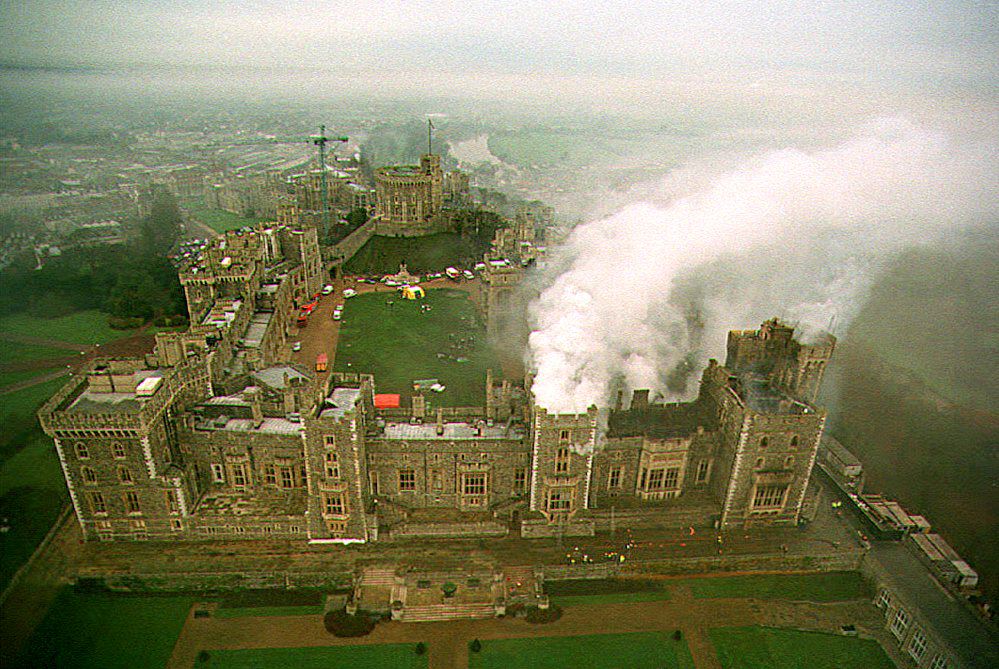
Still more dangerous were the days after the death of Diana, Princess of Wales in Paris. That was a shock to the nation, and the very public outpouring of uncontrolled emotion was something of a turning point in British social history. Never before, not even for the old king or Winston Churchill, had adults wailed in the street about a stranger. Ensconced at Balmoral, the Queen and Prince Philip wanted to protect young princes William and Harry to help them grieve and cope. It was a deeply private, family affair, even though half the country seemed to regard the Windsors as a soap opera.
There were demands that she return to London, and the royal standard flying at full mast was taken as a further sign of the cold insensitivity of the Windsors that Diana had complained of (though she was always respectful of the Queen). In any case, her prime minister, Tony Blair, offered sound advice and she returned to London, inspected the oceans of flowers and cuddly toys, and accepted the condolences of the crowd. Once again she took to the airways and spoke to the nation – live. Blair insists the words were her own, though they may have had the benefit of The Master’s touch:
“What I say to you now, as your Queen and as a grandmother, I say from my heart,” she said. “First, I want to pay tribute to Diana myself. She was an exceptional and gifted human being. In good times and bad, she never lost her capacity to smile and laugh, nor to inspire others with her warmth and kindness. I admired and respected her – for her energy and commitment to others, and especially for her devotion to her two boys. This week at Balmoral, we have all been trying to help William and Harry come to terms with the devastating loss that they and the rest of us have suffered.”
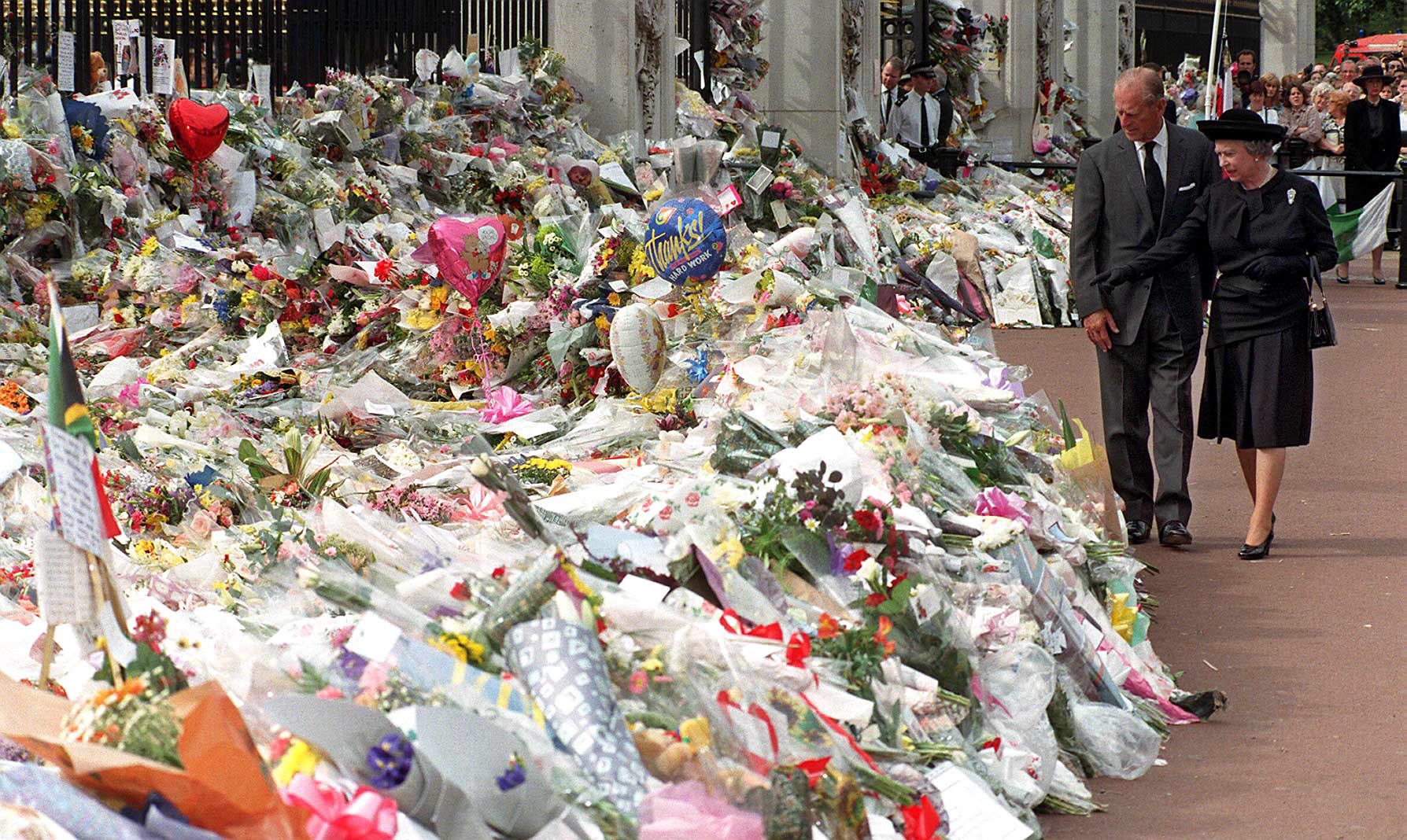
The blend of dignity, humanity and explanation defused the palpable public anger that was building up. The royal standard was lowered to half mast, and the monarchy survived long enough for wounds to heal and ultimately for Charles to be rehabilitated sufficiently to marry Camilla in 2004 (though the Queen pointedly refused to go to the service). Now the Queen, conscious of the shift in public opinion, has also acceded to her son’s request to anoint her as future Queen Consort.
Whatever personal feelings and memories the Queen has of the union, she kept the show on the road long enough to make it to safer ground – despite a brief outbreak of Charles and Diana mania in the mid-1980s when some polls showed support for the Queen to “retire” at 60. If there was any doubt about her intentions, she reportedly told the Archbishop of Canterbury, George Carey: “I’m going to carry on to the end.” She did, as she always has.






Join our commenting forum
Join thought-provoking conversations, follow other Independent readers and see their replies
Comments